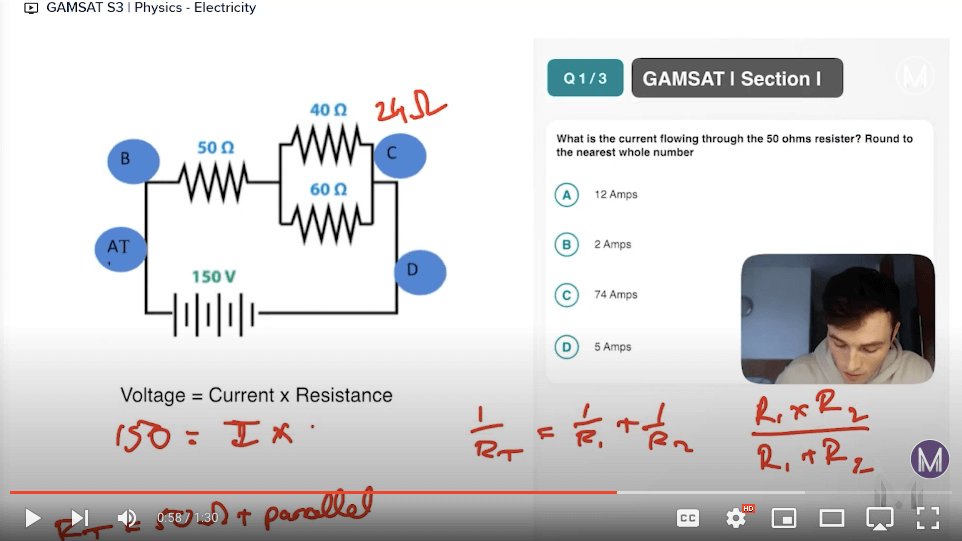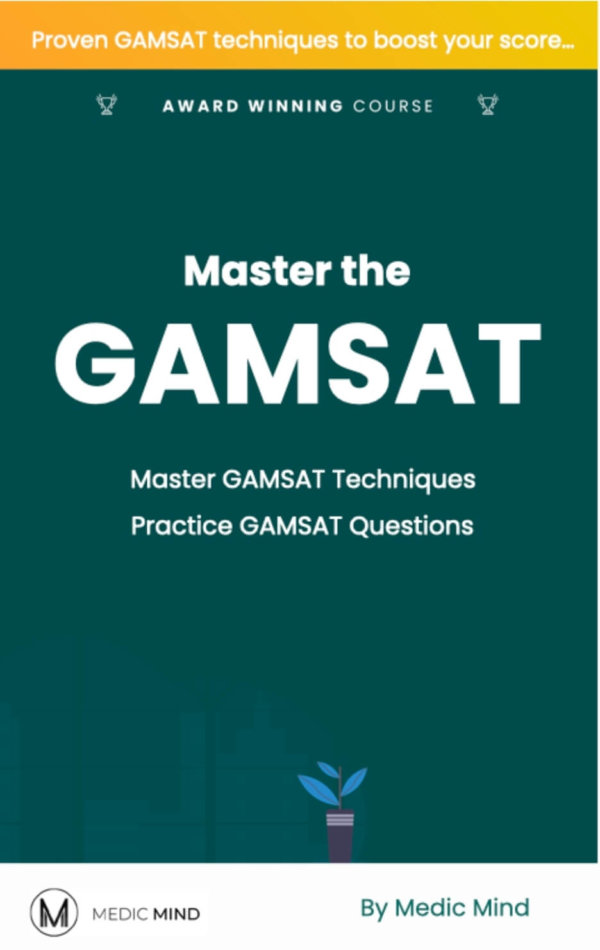Loading...

How Difficult is Graduate Entry Medicine?
Medicine is long been considered one of the most demanding degrees you can do. Many medical schools now offer an accelerated version of their courses designed especially for graduates. Completing the course in a shorter time is going to be challenging, but how hard is it really?
Should I apply for GEM?
One of the first things to consider when if you’re thinking of applying the graduate entry medicine, is if it would be best for you to apply for standard entry courses? Not only are GEM courses difficult, but they are also extremely competitive to gain entry to. GEM courses are consistently some of the most competitive in the country, often seeing competition ratios 2-3x higher than standard entry courses.
Universities are increasingly open to taking graduate students onto their standard-entry courses alongside school leavers. For example King’s A100 cohort is comprised of almost a third of graduates. If you’re unsure if the pace of GEM would suit you, it’s worth considering if five or six year courses might be better for you. The funding for graduates on standard courses is different to those studying GEM. Take a look at our funding article for more advice.

What does a graduate entry medicine degree look like?
The answer to this question isn’t so straight forward. It is a very university dependant. Course structure varies between medical schools and each take their own approach for integrating GEM students in with the standard cohort.
For example, Barts (QMUL) the first year of GEM is an integration of the first two years of their standard course, so you’re effectively completing two years at once. Whereas, at King’s you will effectively skip the first year and enter directly into Year 2. GEM students are given a short “crash course” in August which covers the most important aspects of Year 1 but from this point on GEM is basically identical to the standard course.
You can see these two universities take very different approaches and therefore have their own difficulties. It’s important to consider your own strengths and learning styles and think about which style of course would suit you best. For example, someone with a strong biomedical background may prefer the King’s course with with a difficult first month but rest of the course being at the same pace as the standard cohort.
There are currently two exclusively graduate medical schools in the UK: Warwick and Swansea. Every medical student at these two universities have previously studied a degree. This means that the GEM curriculum is completely designed for graduates and is not an adapted version of the standard course.
Boost your Chances with our GEM Tutors!
How difficult is graduate entry medicine?
The thought of studying an already difficult degree at a faster pace can be overwhelming. But remember that as a GEM student you will have already studied at university level for at least 3 years. Without even realising it you will have picked up study and life skills that will equip you to study at this level.
It’s also worth remembering that GEM is still an undergraduate degree so the content difficulty won’t be any trickier than the degree you already have. The more difficult aspects will most likely be the volume of content and speed at which it’s delivered. Overall, many excellent doctors have trained through the GEM route and it is definitely do-able and achievable. If you consider your own personal background and learning style, you will most likely be able to find a GEM course that suits you.
Course Comparison Table
| University | Number of Places | Course Structure | Aptitude Test | Non-Science Degrees? |
|---|---|---|---|---|
| Barts (QMUL) | 39 | First year is equivalent to Y1+2 of the standard course. GEM students join standard cohort from second year for clinical rotations. | UCAT | Yes |
| Birmingham | 40 | First year is equivalent to Y1+2 of the standard course. GEM students join standard cohort from second year for clinical rotations. | None | No |
| Cambridge | 40 | Pre-clinical studies are condensed into two years with clinical rotations completed in the holidays so that GEM students join the standard cohort (who are in Y4) from their third year. | none | Yes |
| Cardiff | 25 | First year is equivalent to Y1+2 of the standard course. GEM students join standard cohort from second year for clinical rotations. | GAMSAT | No |
| Dundee / St Andrews | 55 | Unique graduate curriculum | UCAT – Situational Judgement Test and GAMSAT | Yes |
| Ulster | 30 | First two years focused on lectures and small group work. Final two years focused on clinical placements | GAMSAT | Yes |
| King’s | 27 | Direct entry into Year 2 of standard course after a month long “summer school” | UCAT | No |
| Liverpool | 29 | Direct entry into Year 2 of standard course after a two week long “summer school” | GAMSAT | No |
| Newcastle | 25 | First year is equivalent to Y1+2 of the standard course. GEM students join standard cohort from second year for clinical rotations. The first year is extended to allow for additional time. | UCAT | Yes |
| Nottingham | 113 | First 18 months is equivalent to Y1+2 of the standard course. GEM students bypass the intercalation stage and join Year 3 of the standard course for clinical placements from the second half of GEM Y2. | GAMSAT | Yes |
| Oxford | 25 | The first two years are an integrated course of pre-clinical and clinical medicine. GEM students join the standard cohort for clinical phase in their final two years. | BMAT | No |
| Southampton | 48 | The first two years of GEM are taught separately from and are roughly equivalent to the first three years of the standard course. GEM students are mixed with the standard cohort for the final two years in clinical placements. | UCAT | Yes |
| St George’s | 60 | First year is equivalent to Y1+2 of the standard course. GEM students join standard cohort from second year for clinical rotations. | GAMSAT | Yes |
| Swansea | 106 | Unique graduate curriculum | GAMSAT | Yes |
| Warwick | 193 | Unique graduate curriculum | UCAT | Yes |

Frequently Asked Question
→How difficult is graduate entry medicine?
Graduate entry medicine is widely regarded as a challenging and demanding course of study. This is due to the rigorous academic curriculum, the intensive nature of the program, and the high expectations placed on students. Students are required to possess a strong academic background and must be able to manage a high workload and meet strict deadlines.
→What are some of the challenges of graduate entry medicine?
Some of the challenges of graduate entry medicine include the fast-paced and intensive nature of the program, the extensive amount of coursework and exams, the need for strong time management and organizational skills, and the pressure to perform well academically. Additionally, students are expected to have a high level of emotional resilience and be able to handle the stresses and demands of working in the medical profession.
→How can students prepare for the challenges of graduate entry medicine?
Students can prepare for the challenges of graduate entry medicine by developing strong time management and organizational skills, seeking academic support and guidance, building a strong support network of peers and mentors, and taking care of their mental and physical health. Additionally, students can research and prepare for the academic and clinical components of the program by reviewing course materials and practicing relevant skills.
→How does graduate entry medicine differ from undergraduate medicine?
Graduate entry medicine is designed for students who have completed a bachelor’s degree in a relevant field, whereas undergraduate medicine is typically pursued directly after completing high school. Graduate entry medicine programs tend to be shorter and more intensive than undergraduate programs, and they may have higher academic standards and expectations.
→What support is available for students in graduate entry medicine?
Universities and graduate entry medicine programs typically offer a range of support services for students, including academic advising, tutoring, counseling services, and career development resources. Students can also seek support from their peers, mentors, and professional organizations related to their field of study.
Related
Related Articles
Personalised 1-1 private lessons, tailored to your GAMSAT needs
With over 1000 GAMSAT questions, worked examples and mock run-throughs - your complete GAMSAT course!
Prepare for the GAMSAT with a full day of expert GAMSAT tuition, learning the tips and tricks to boost your score to the maximum.





Was this article helpful?
Still got a question? Leave a comment
Leave a comment
366 Comments
AnonymousMedic Mind Tutor
26 June 2021
Hi, I am a final year Econ student and am looking to apply for GEM – I have A-levels in Chemistry, Maths, Econ. I have only recently decided I would like to pursue GEM and as such I do not have any clinical work experience – how much of a disadvantage would this be for me?
AnonymousMedic Mind Tutor
5 October 2021
If you don’t have work experience you won’t be shortlisted for interview.
AnonymousMedic Mind Tutor
26 September 2021
This is a little out of date. Not including Ulster university as the 3rd completely graduate course. Taking the Gamsat and currently 70 students with a hope for this number to raise.
ShwetaMedic Mind Tutor
10 May 2022
Thank you for letting us know! We have updated the article accordingly.
AnonymousMedic Mind Tutor
8 October 2021
does anyone have a comprehensive list for non science graduates and non science A-level applicants? as a caveat to some of these uni’s is that they require non science applicants to have Chem A level.